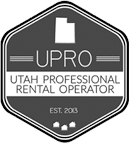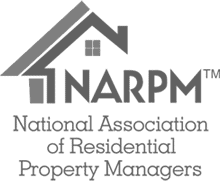When Does a Guest Become a Tenant?

When Does a Guest Become a Tenant?
Whether it’s a property manager or landlord, they both spend a lot of time and effort recruiting good tenants. They use expert marketing, run background checks and establish a full move-in process. One of the biggest disappointments in Salt Lake City property management can be all of that effort being wasted when a guest becomes an unscreened and often unwanted tenant.
In these types of situations it is very important for a landlord to be aware of their rights. It also helps to know the difference between a tenant who has signed a lease, a guest and an unauthorized occupant.
These are the different types of people who may occupy your property and the terms used for them:
- Tenant: this is the person (or persons) who applied for the rental property and signed the lease for the property. The tenant is the legal resident who is responsible for paying rent and caring for the property for the duration of their lease.
- Authorized Occupant: This is a term that describes people who legally reside in the rental property, but legally can not sign the lease. Most often this term applies to the children of someone leasing your property, but is occasionally used in other circumstances.
- Subletter: This is a person who is added to the lease after the lease’s term has started. This can be done properly, when the original tenant makes the landlord aware of the subletter. They are then subject to the same background checks and other standards as the original tenant. However, this can also be applied to a person that has moved into a rental with the original tenant. In this situation the landlord may not be privy to the situation. The landlord may or may not be aware of the additional person’s presence in the rental property.
- Extended Guest: Landlords must allow tenants to have guests. However guests who stay for extended periods should be reported to the landlord. If the long term guest is helping to pay rent, they become an unauthorized occupant.
- Squatter: This is an unauthorized guest who refuses to leave the property. This can also be applied to a tenant who refuses to leave after their lease ends. A property manager can help navigate this situation in a safe and legal way.
How Unauthorized Tenants Become a Problem
There are a few reasons why someone living in your rental property without a lease or your approval can be a serious problem.
- There is no lease, or the lease cannot be enforced: The purpose of a lease is to set out the rules of the rental agreement, if there is no lease or it cannot be enforced, there is no way to require these persons to follow property rules. This can be incredibly detrimental in an apartment community or HOA community. It may even cause fines to be lobbied against the landlord in some cases.
- There is an increased risk of damage to your property: Because there is no lease, it is significantly more difficult to hold these individuals legally or financially responsible for damage that they may cause.
- Lack of Payment: As you can guess, when these people cannot be held legally responsible for your property, they are often unwilling to pay rent. In some cases, criminals intentionally try to find these situations to scam and take advantage of a landlord. In Salt Lake City, property management companies can be a great deterrent to these types. These scammers count on finding landlords who don’t know the laws and want to avoid lengthy court cases; they know a property manager will use the court system to force them out and force payment.
When Should you Add a Guest to the Lease?

A guest should be added to the lease, with due diligence, when they stay for more than two weeks in a six month period or if they are helping to pay for rent. That said, if you have a problem with unauthorized tenants, you will need to take legal action. If you are unsure of your rights as a landlord or you feel the situation is out of control, you may want to consider hiring a Salt Lake City property management company to help. An effective property manager can prevent most unauthorized tenants through supervision and good communication. When this fails, a property manager can handle the situation through the court system.








